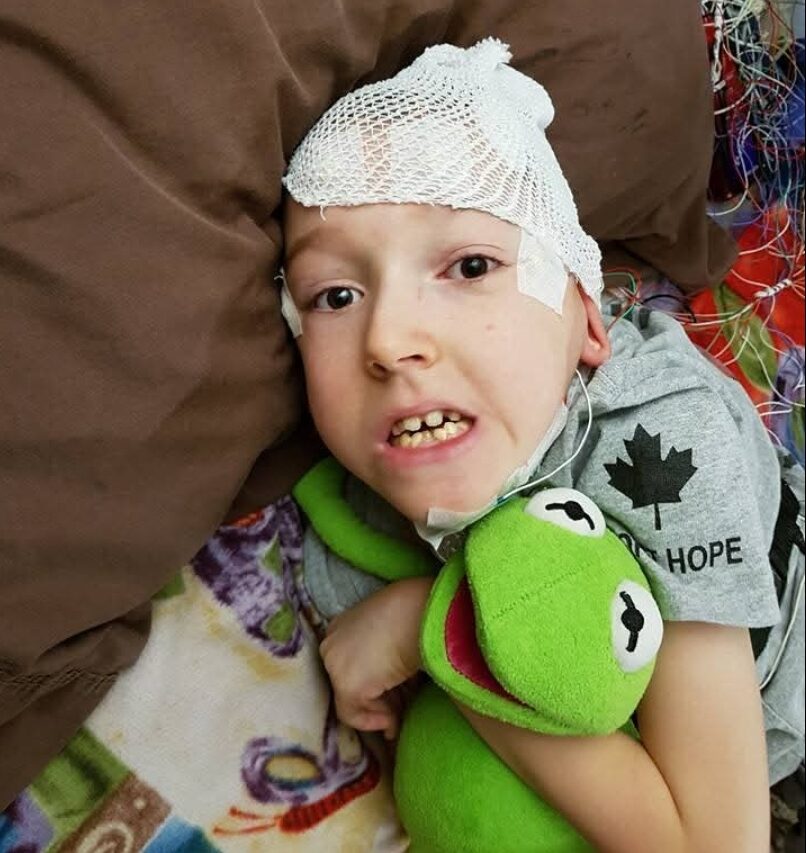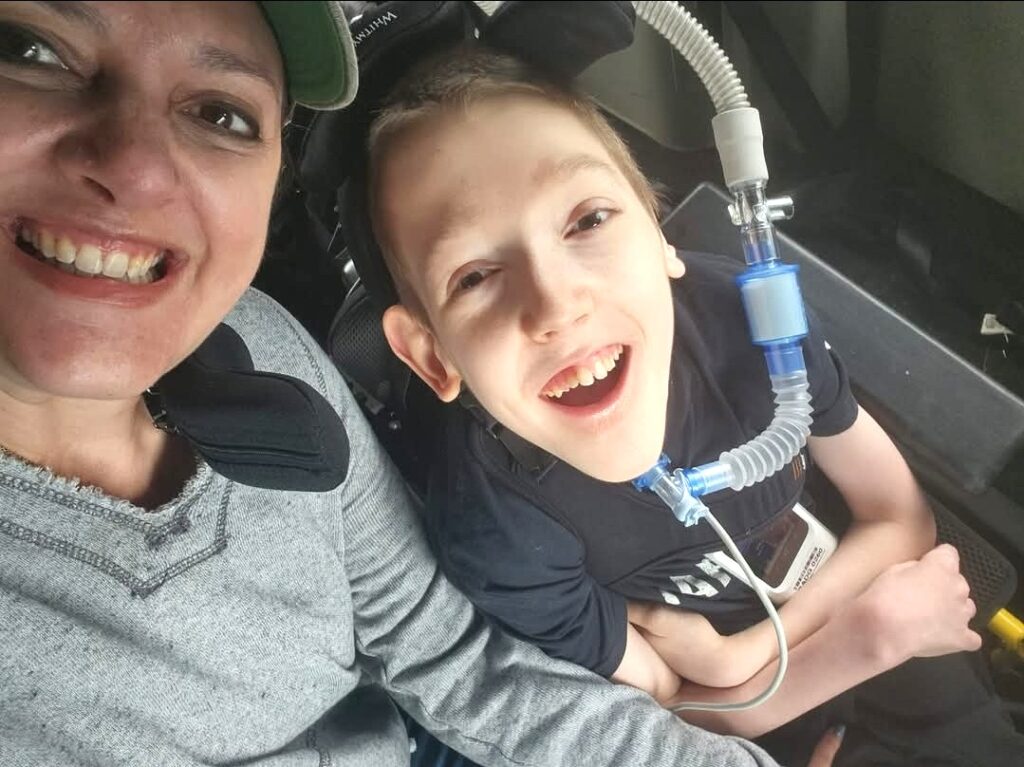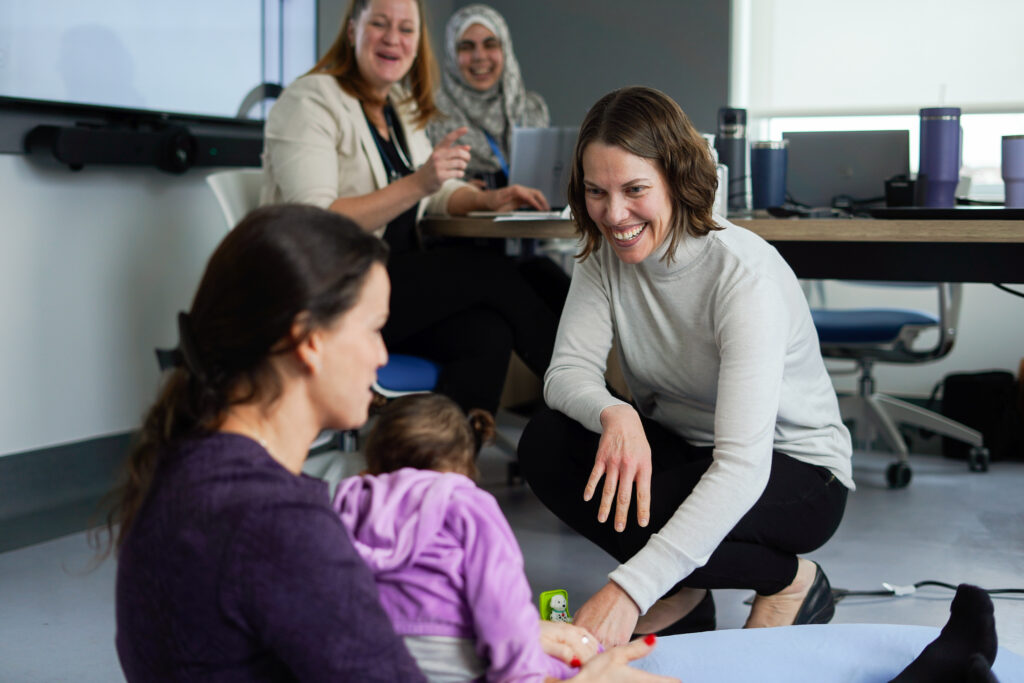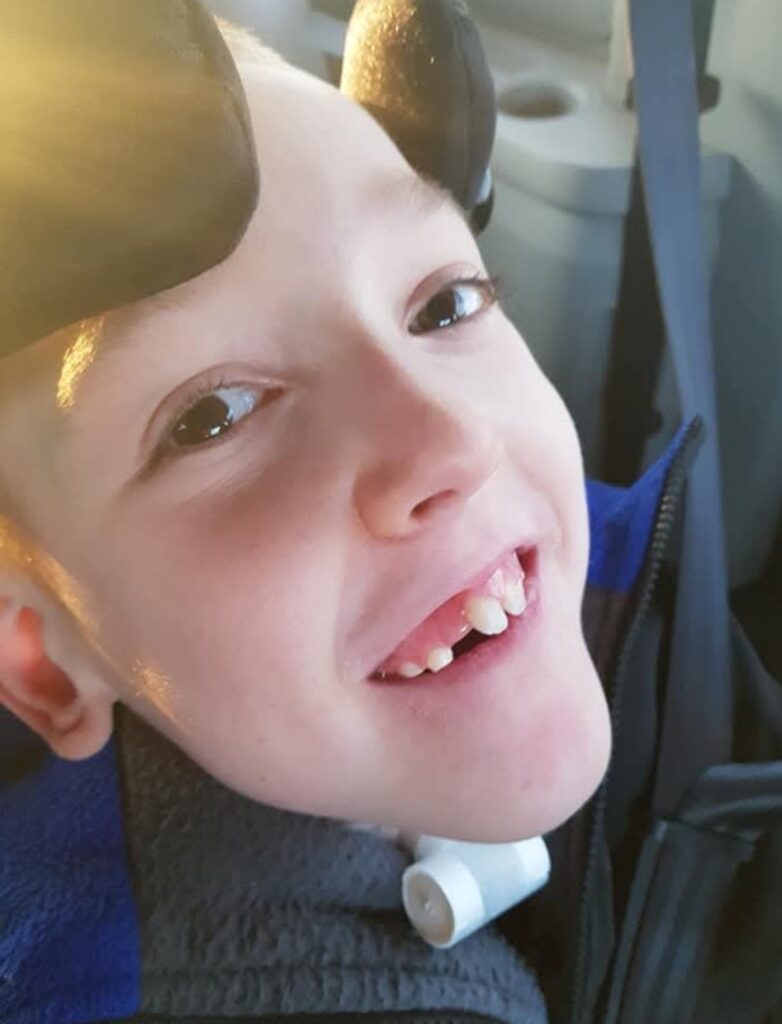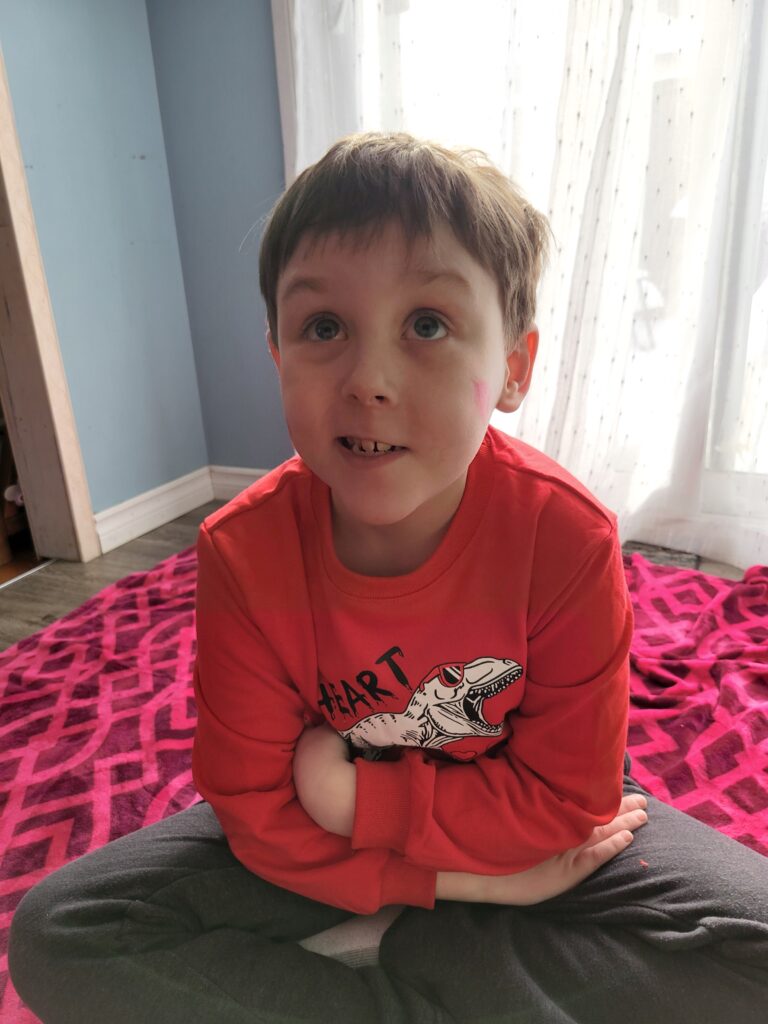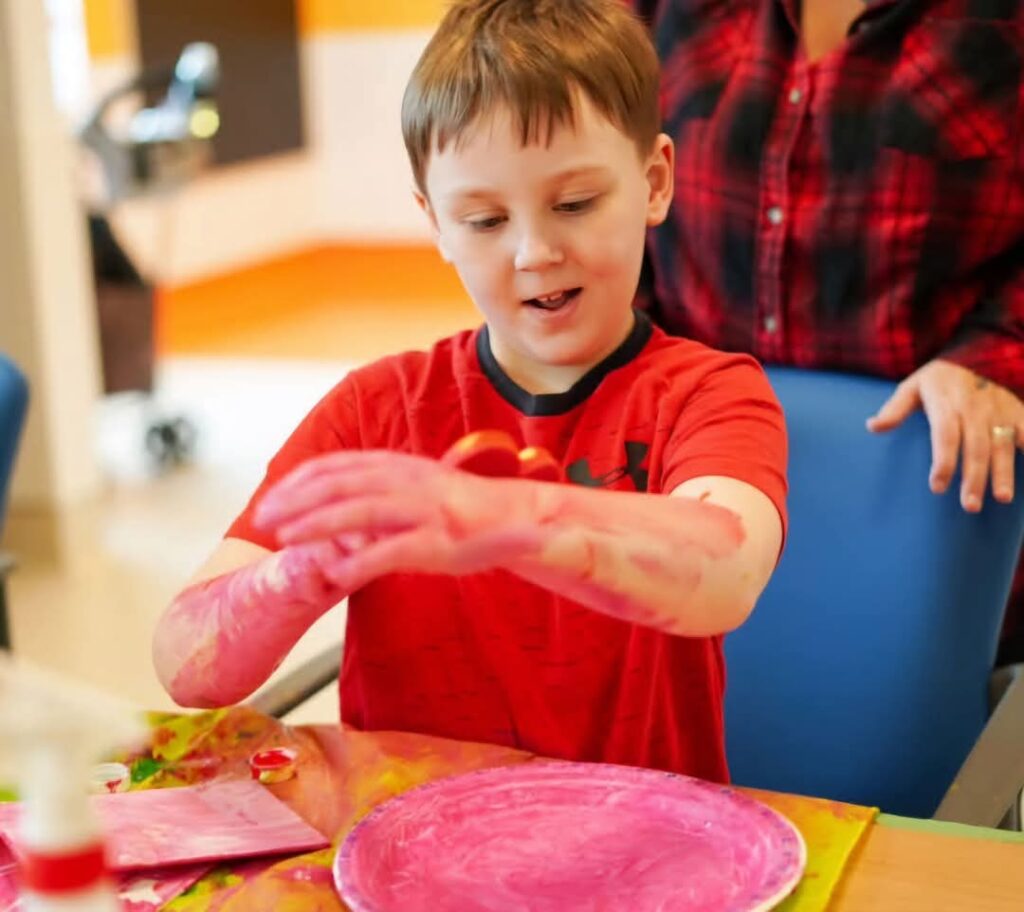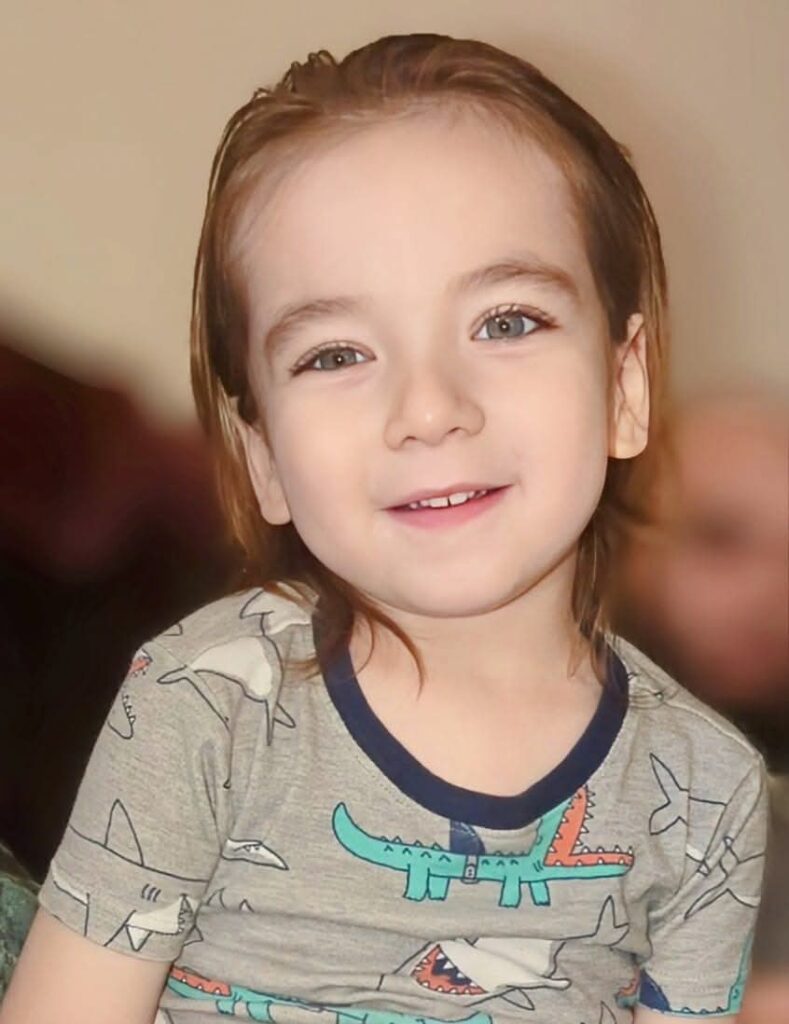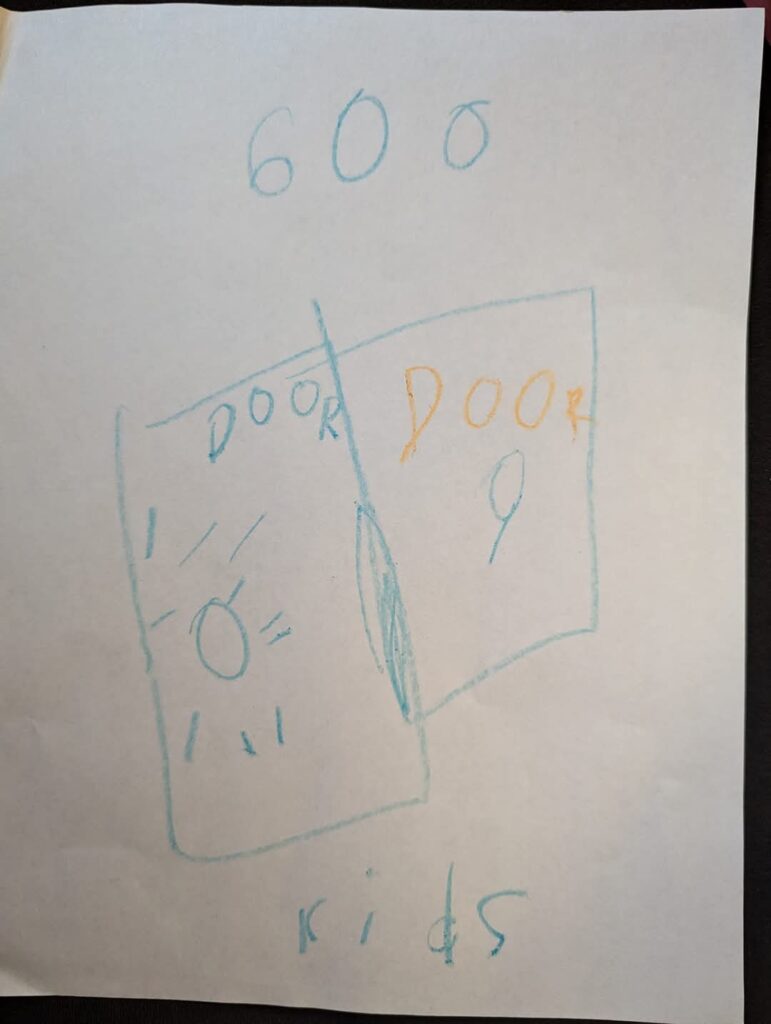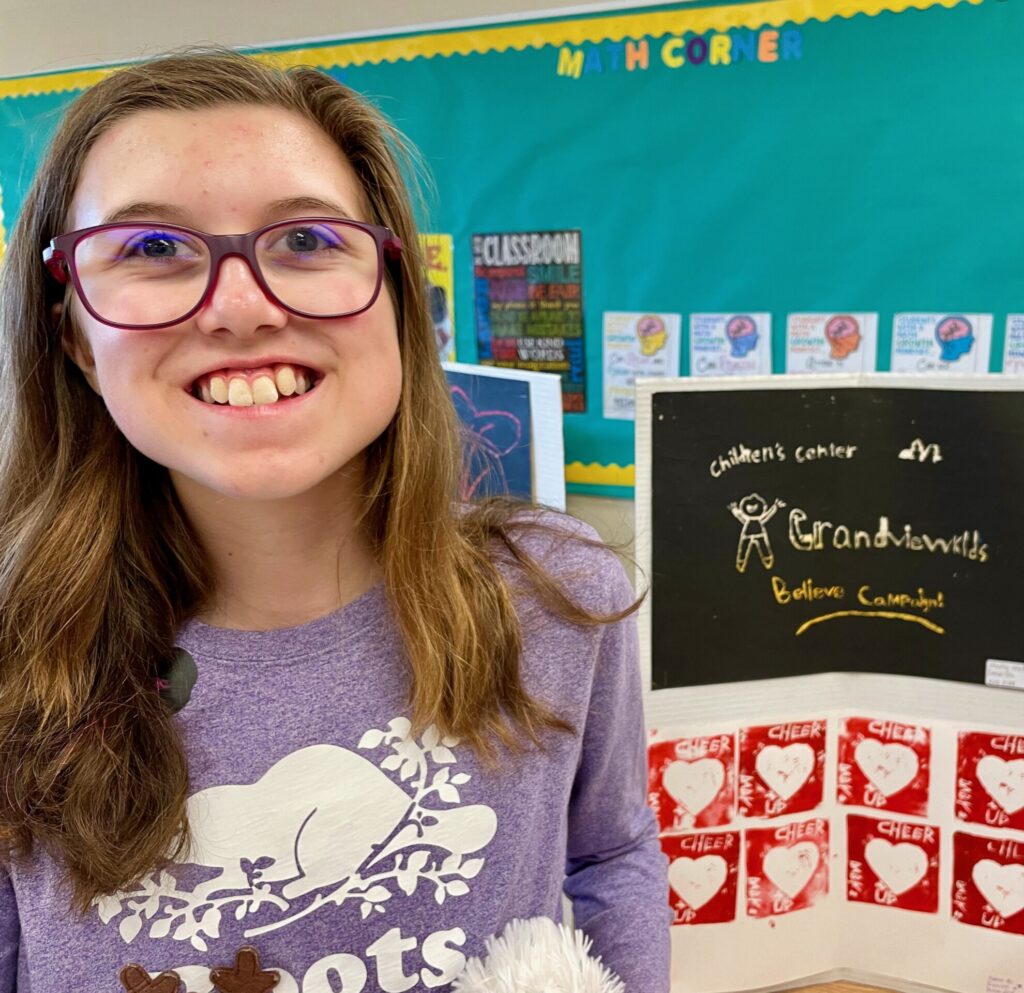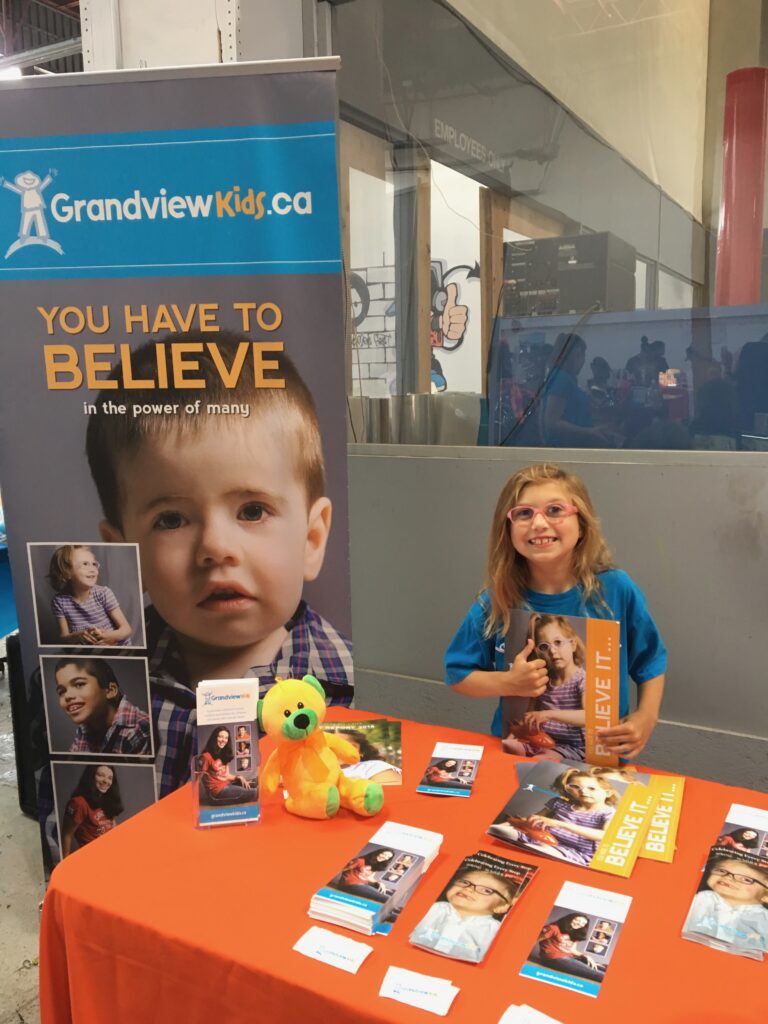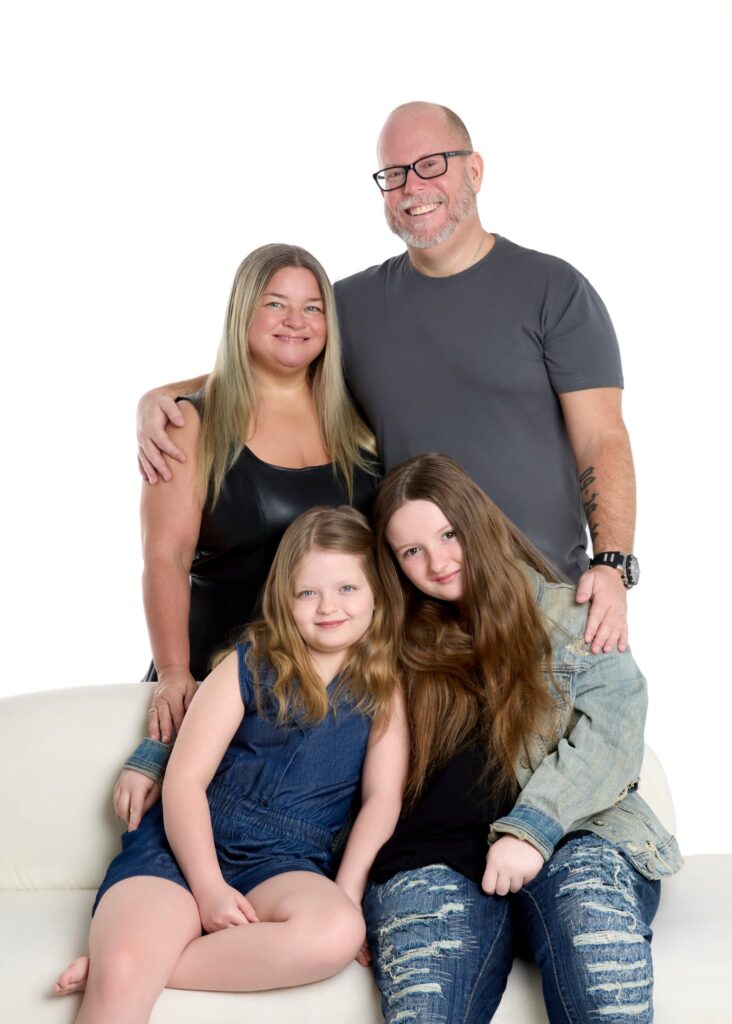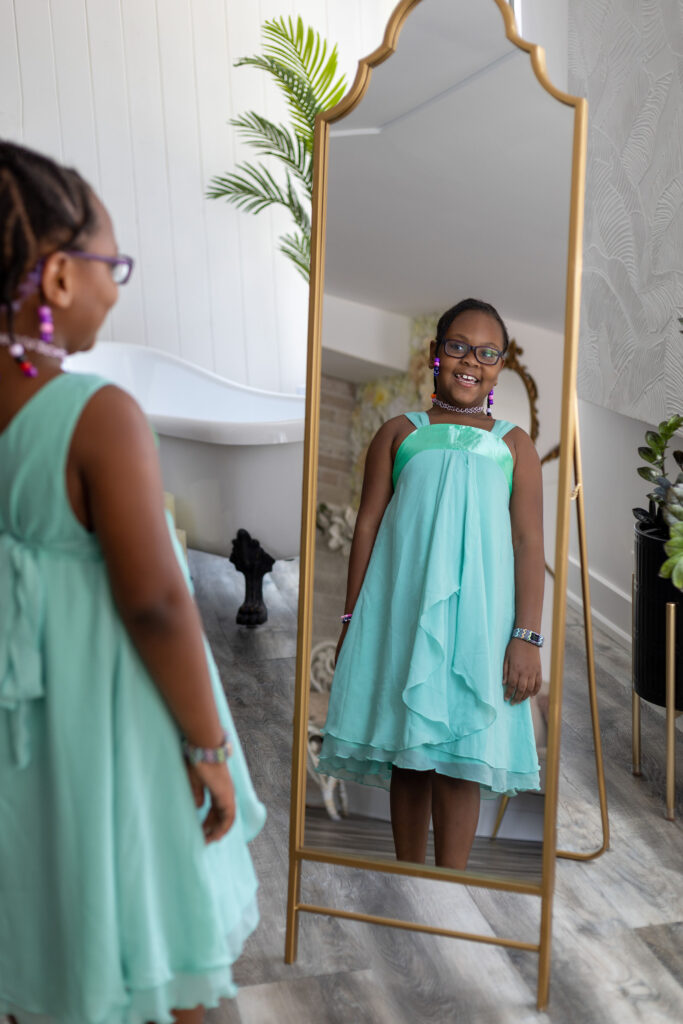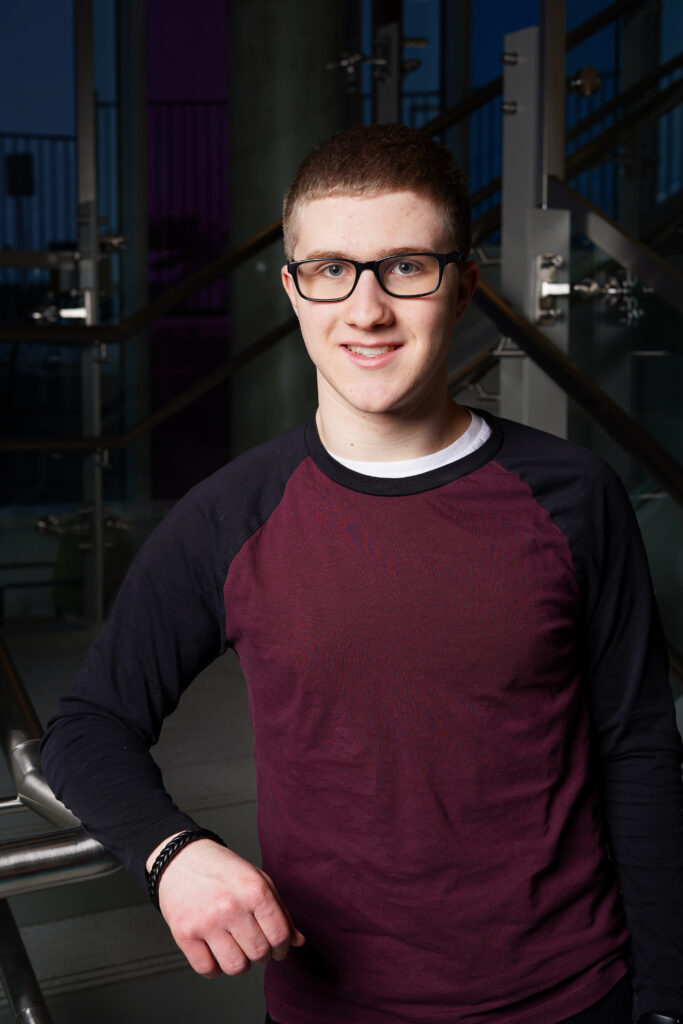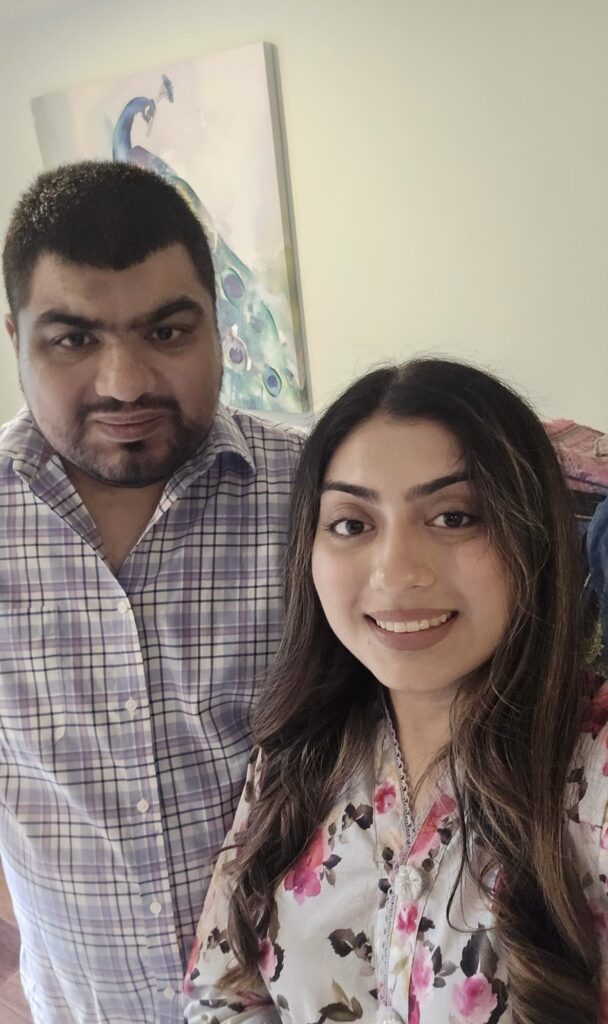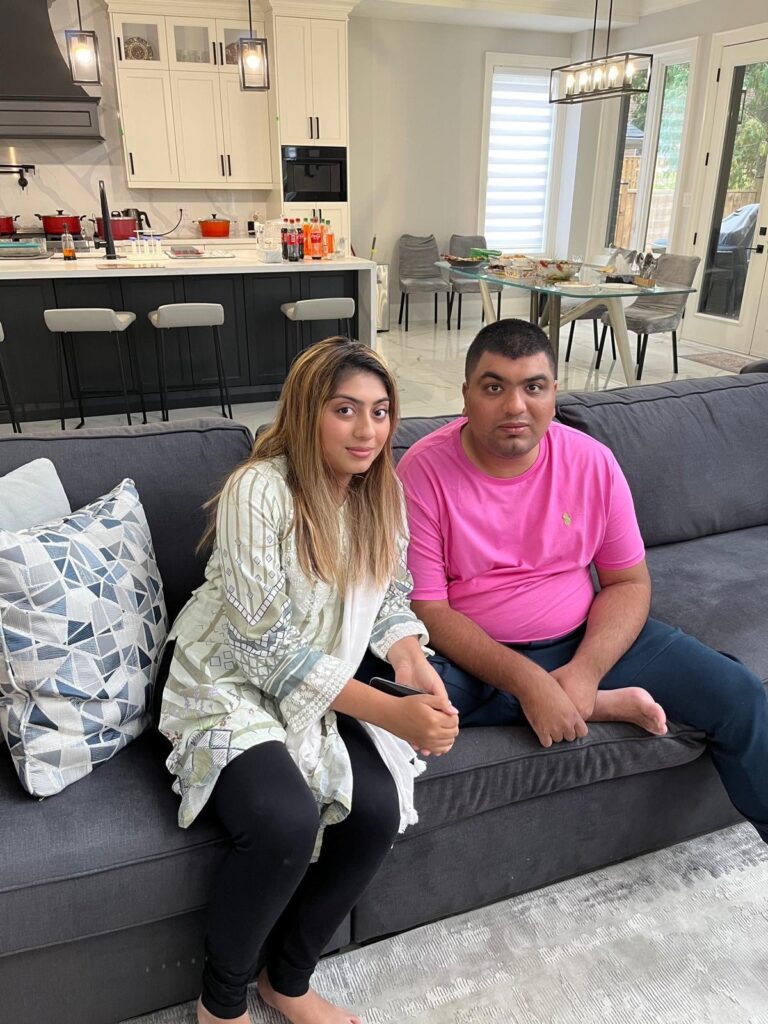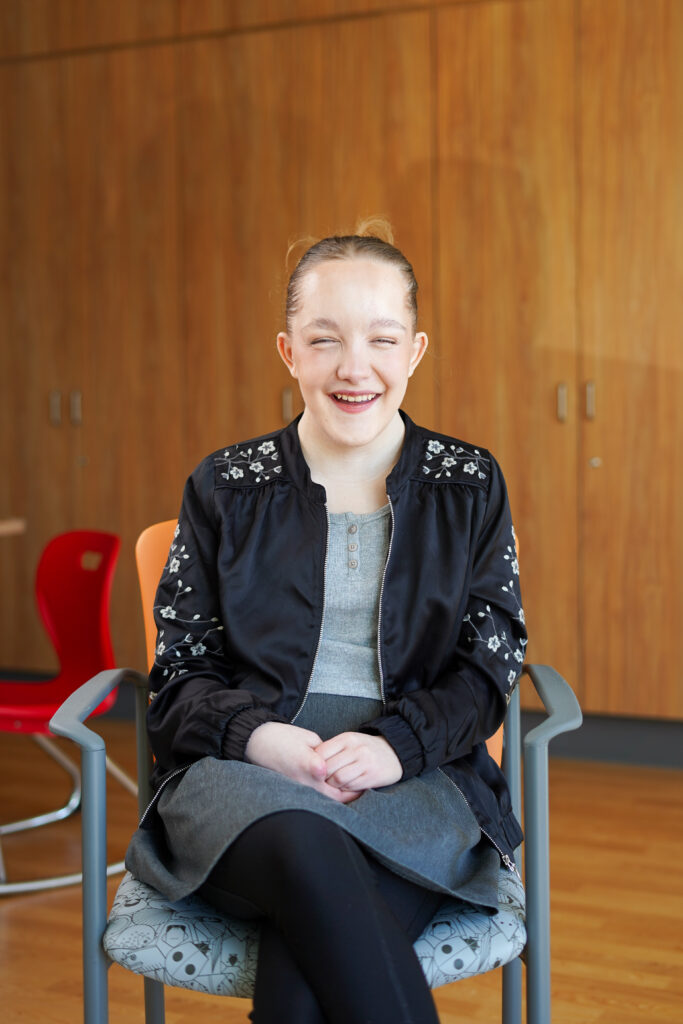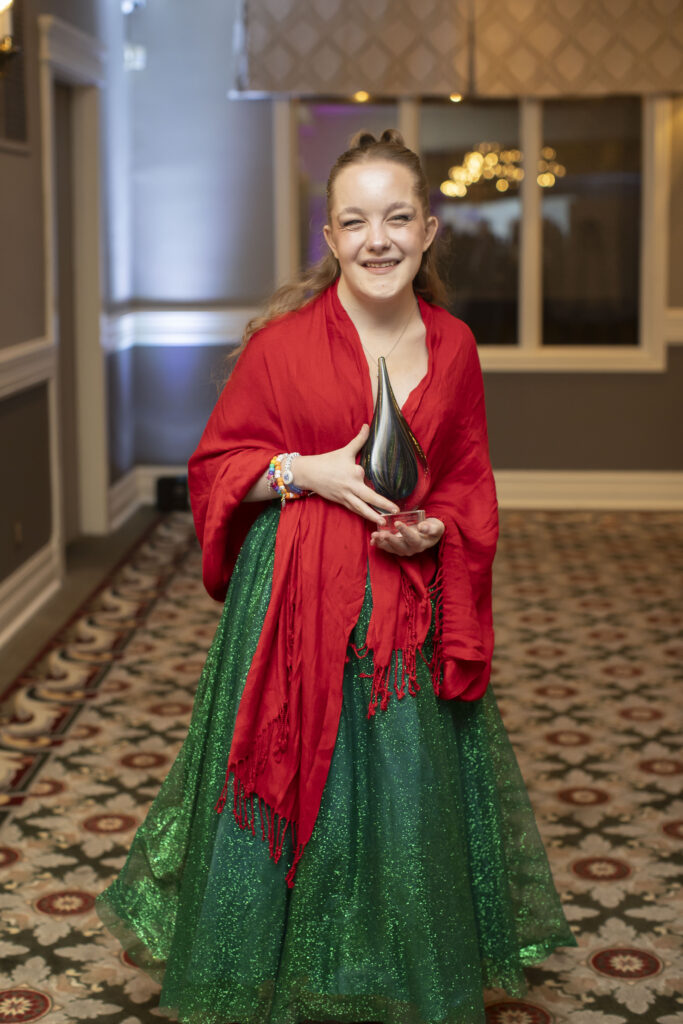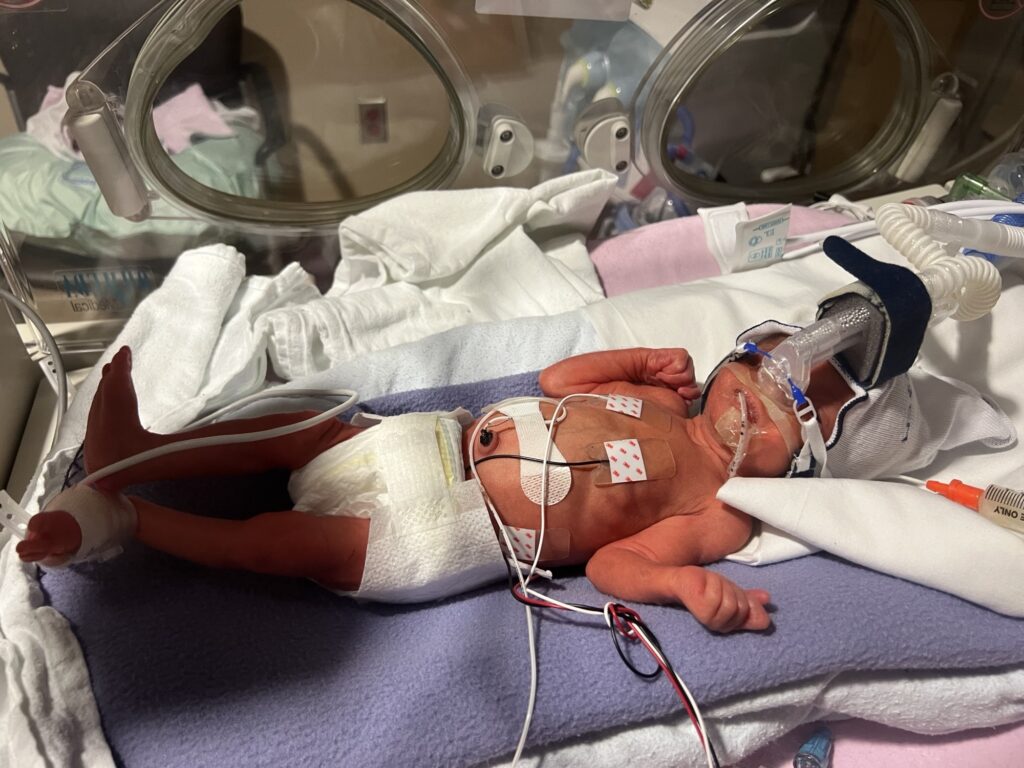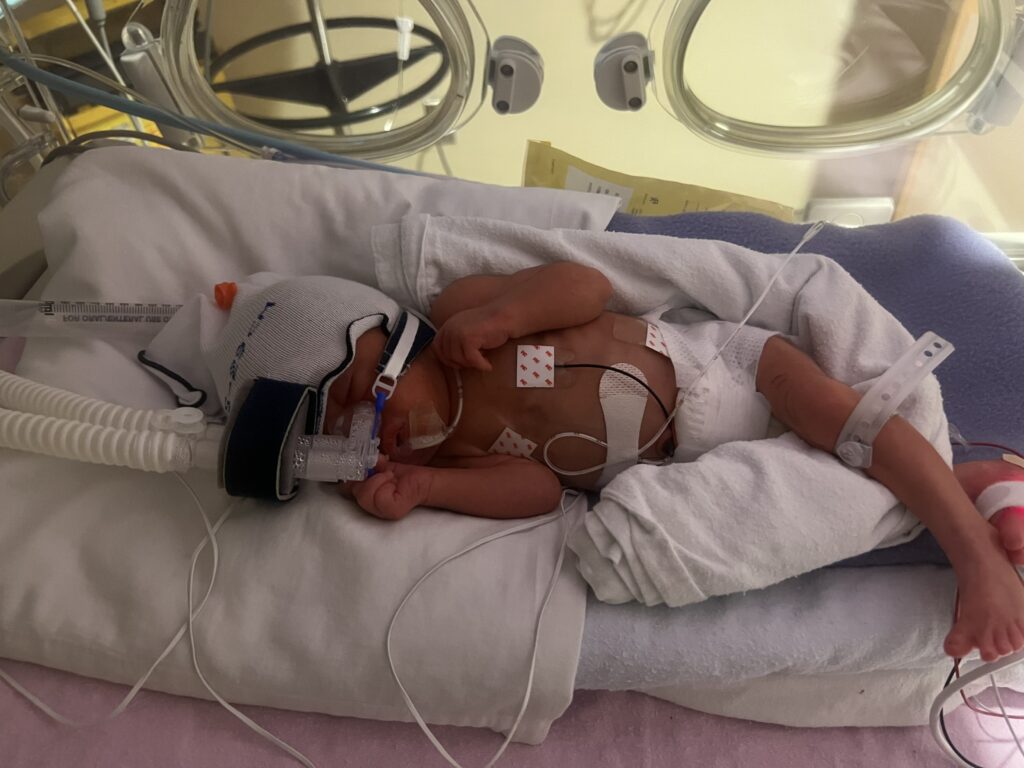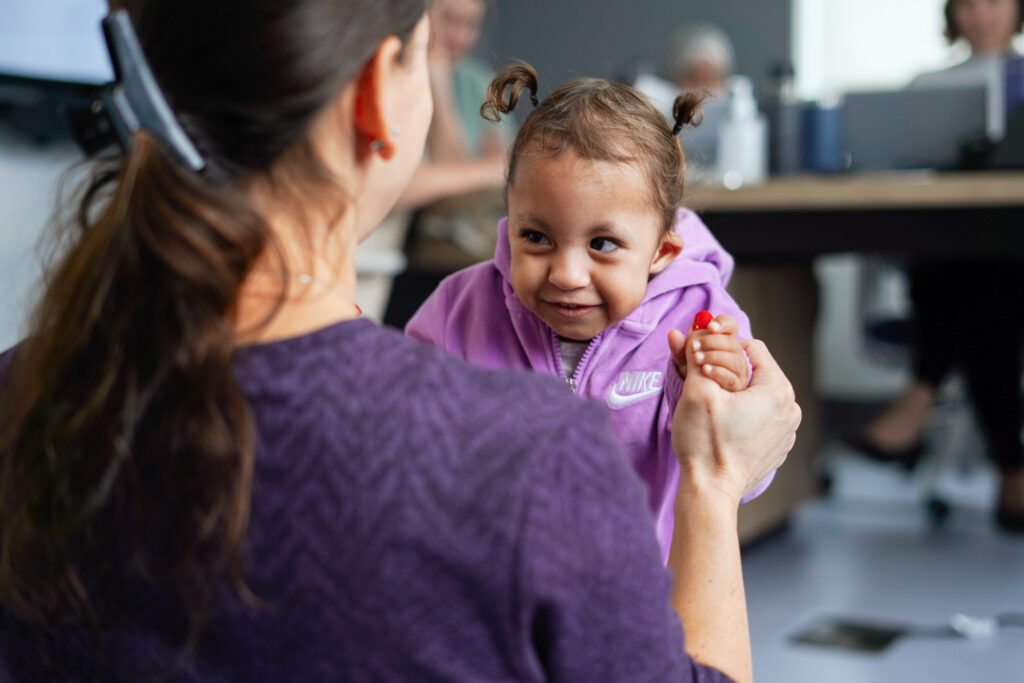June 23 is International Dravet Syndrome Awareness Day. This day gives families affected by Dravet Syndrome a chance to share stories, build support and increase public knowledge about this rare form of childhood epilepsy. This syndrome is associated with a genetic mutation, primarily in the SCN1A gene, a sodium channel receptor. Dravet Syndrome is a spectrum, affecting individuals with different outcomes depending on gene mutation. Classic signs and symptoms include children presenting with the onset of seizures before their first birthday, with long-lasting initial seizures, often triggered by illness. Individuals with Dravet Syndrome are diagnosed through genetic testing that observes sodium channel levels. Grandview Kids’ Peer Navigator, Jacki N., shares her family’s journey as they navigate life with Dravet Syndrome.
13-year-old Colton lives with his parents, Jacki and Chris, older brother Treston and younger siblings Jaxon and Adelaide. They enjoy travelling, watching and playing sports and birdwatching, which gives them a purpose to go on many family walks and hikes. Colton loves all sports, particularly watching hockey, baseball and soccer, the latter of which he plays. He is also fond of playing video games with his brothers, is fascinated with bubbles, loves watching Toopy and Binoo and is always ready for an adventure. Although Colton has a sweet and easy-going personality, he is also quite persistent, preferring to stick to his known routines and schedules, even after rough days or nights of experiencing multiple seizures.

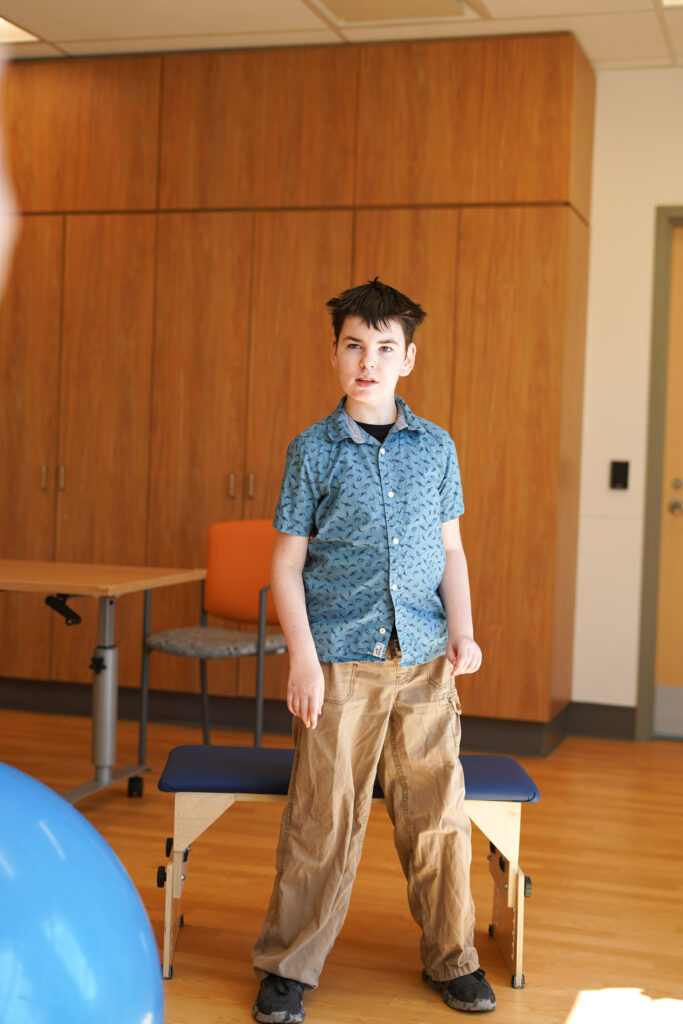
Colton was diagnosed with Dravet Syndrome in April 2013, a year after his first seizure. As expected with Dravet Syndrome, he was later given a formal diagnosis of global developmental delay. Receiving the Dravet Syndrome diagnosis was an unexpected and initial shock to his parents. Later that evening, Jacki vividly recalls giving Colton a bath and looking at him, thinking “[the diagnosis] doesn’t change him; this is who Colton is,” immediately transitioning to acceptance, which they recognize can be a challenging step for parents and caregivers. Within a few weeks, Jacki began to realize the importance of receiving a formal diagnosis as it opened doors to education, treatment and connection with other families to help understand the nuances of Dravet Syndrome. “Receiving a diagnosis was more helpful than not receiving one,” as she was able to focus her research on sodium channel levels for controlling and stopping seizures.

Seizure treatment and management for those living with Dravet Syndrome typically include a ketogenic diet, cannabidiol (CBD), which is used to significantly decrease seizure activity, pharmaceutical medications and, often, as a last resort, vagus nerve stimulation (VNS). VNS is an implanted device that sends mild electrical pulses through the vagus nerve to the brain to alter nerve activity and stop seizures. Jacki’s family quickly learned about Colton’s heat trigger, a commonality among those with Dravet Syndrome, prompting them to order a cooling vest. They also initially received pushback from their medical team on a treatment plan. However, the diagnosis gave them clearance to put Colton on a ketogenic diet, which has been highly effective for his seizure management. Making necessary adjustments to his diet, such as removing fruits at dinner to increase Ketone levels or taking supplements, has proven that even minor but tailored changes are helpful.
Accessing medications currently being researched is a vital intervention for chronic illnesses like Dravet Syndrome, but they are not without risks. Colton was on a 5-year-long trial medication that required the consumption of 14 pills daily. Unfortunately, the trial medication was not approved, and he required weaning from this essential medication. This lengthy process of medication weaning over six months proved to be a challenge, especially when weaning off the last two pills, prompting approximately ten seizures a night. Although he is not back to baseline, the slow weaning process and dietary changes helped decrease the seizures to only one 30-second seizure a night.
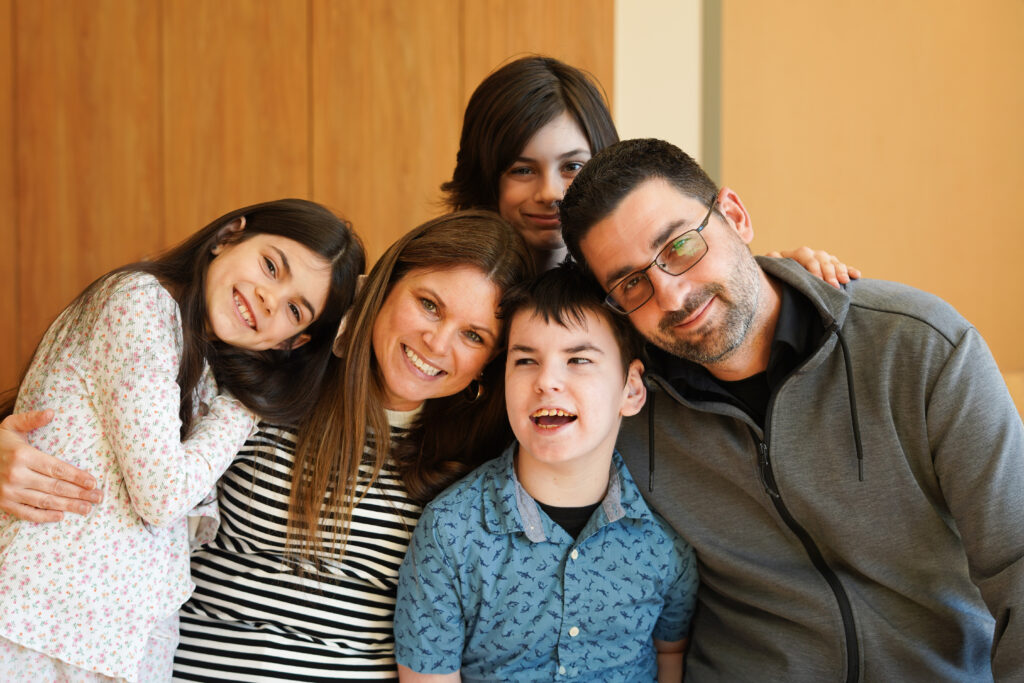
Losing seizure control and having to administer rescue medication is frightening. “We can’t give him rescue medication every night, or else we should be in the hospital,” Jacki says. If Colton has a bad night, he must likely recover at home the next day by sitting and resting. When deciding to participate in a research trial, you must be prepared to lose control over anything related to the medication. “We cannot tweak doses and are at the mercy of those running the trial and the supplier. We depend on funding and adequate results.” Jacki also shares that Canada is behind Europe and the U.S. in trials, research and development, so even if the medication works and is approved, there may be insufficient healthcare coverage for the costs after trial completion.
Although most treatments aim to reduce the frequency of seizures, they do not address other effects of the disease and seizure control remains a challenge for the majority of those with Dravet Syndrome. Colton can walk short distances in the home and community but uses a paediatric stroller for longer distances. He can also communicate his needs and wants with few words and his body language, but the effects of his seizures are significant and long-lasting.
Grandview Kids has been part of Colton’s journey since the beginning. His family are active members of the Grandview Kids community, being members of the Family Advisory Council (FAC), Youth Advisory Council (YAC) and Family Engagement Team (FET) over the years. Colton has received necessary support through Grandview Kids’ medical, therapy and social work services. “Of all the support I received, Grandview Kids was the most impactful,” Jacki shares. “We would always go to different events since seeing other families like mine, although experiencing different problems, because it made me feel like I wasn’t alone.” Through these connections, resources and information were freely shared, introducing Colton to Challenger Baseball, inclusive programming and soccer. Jacki appreciates how Colton and her other kids would see familiar faces, feel welcomed and be exposed to children with all types of skills and abilities. She emphasizes the importance of getting involved in attending Grandview Kids events, especially those hosted by the FET. “I didn’t always want to attend, but I would always leave better,” challenging other parents and caregivers to make the time to foster community, connection and belonging.
